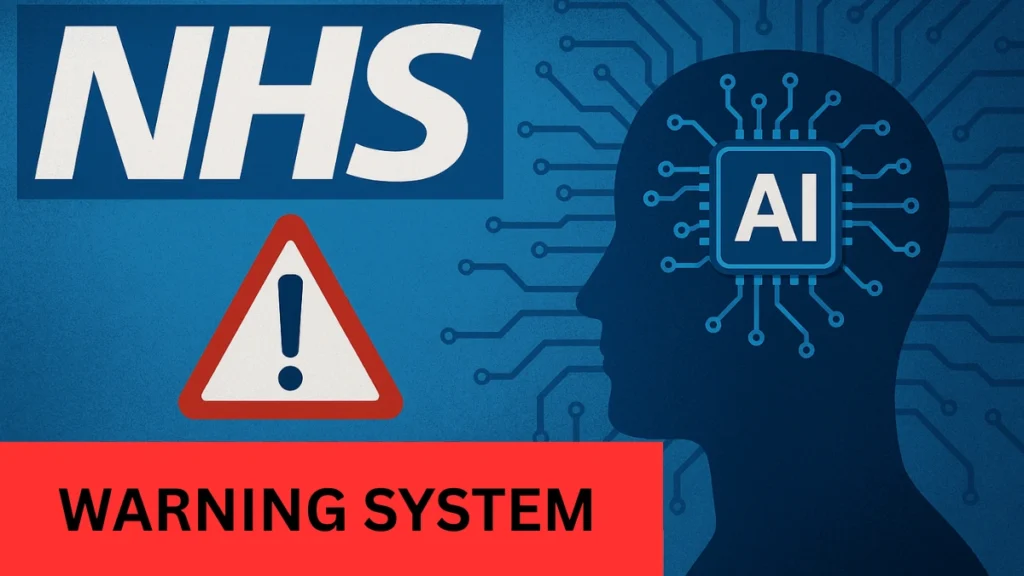The NHS is making history by introducing an AI-driven early warning system to spot patient safety risks before tragedy strikes. From maternity scandals to mental health crises, here’s how technology could transform care—and why some experts urge caution.
Key Takeaway
- NHS first in world to launch AI safety alert system
- Focus on maternity, mental health, and patient harm prevention
- AI analyzes real-time hospital data for early warnings
- Experts warn staffing still crucial for safety
- Part of wider digital overhaul to improve care
In a historic move, the NHS is set to become the first health system globally to deploy artificial intelligence as an early-warning radar against potential patient safety scandals.
Announced by the Department of Health and Social Care, the initiative aims to spot troubling trends in patient outcomes—like spikes in stillbirths, neonatal deaths, or mental health crises—before they spiral into large-scale failures. Health Secretary Wes Streeting described the system as a “world-first” tool designed to catch dangerous signals early and trigger rapid inspections.
“While most treatments in the NHS are safe, even a single lapse that puts a patient at risk is one too many,” Streeting said. “This technology will save lives: catching unsafe care before it becomes a tragedy.”
Spotting Trouble Before It Strikes
Under the new plan, hospitals across NHS trusts will begin using AI to analyze near real-time data starting this November. The system will monitor outcomes like higher-than-average rates of brain injuries in newborns or alarming patterns in mental health services. If suspicious data flags emerge, it could prompt urgent investigations—potentially preventing harm before it occurs.
The initiative lands amid lingering public concern over patient safety, fueled by high-profile scandals in recent years. Last February, Nottingham University Hospitals NHS Trust was fined £1.6 million after admitting failures that led to the deaths of three babies. The 2022 Ockenden review exposed harrowing details of 1,862 maternity cases at Shrewsbury and Telford NHS Trust, where hundreds of babies either died or were left with severe disabilities due to avoidable mistakes.
Against this backdrop, the NHS is determined to shift from a reactive model—investigating tragedies after they happen—to a proactive one that spots trouble before lives are lost.
Digital Overhaul for Safer Care
The AI rollout is a cornerstone of the NHS’s 10-year plan, which is set for publication this week. The government wants to pivot the health service from an “analogue” system to a fully digital ecosystem, using technology to drive faster diagnoses, reduce waiting times, and improve patient outcomes.
AI is already playing a growing role in the NHS—from speeding up stroke diagnoses to detecting cancers earlier. Leaders hope this latest use of AI can help tackle persistent issues like overloaded services and staff burnout by making systems more efficient and targeted.
Professor Meghana Pandit, co-national medical director for NHS secondary care, hailed the AI warning system as a game-changer:
“It will turbo-charge the speed and efficiency with which we identify patient safety concerns and enable us to respond rapidly to improve patient care.”
Not Everyone Fully On Board
However, while there’s widespread excitement over the possibilities of AI, some healthcare professionals caution that technology alone isn’t enough to guarantee safety.
Professor Nicola Ranger, general secretary of the Royal College of Nursing, emphasized that patient safety still hinges on having enough skilled people on the ground:
“Technology will always have a role to play, but having the right number of staff on the frontline of care is the place to start the investment to make patients safe.”
Her warning echoes broader debates about AI in healthcare—where digital tools can enhance care, but human expertise remains irreplaceable, particularly in high-stakes environments like maternity wards or mental health crises.
Beyond Hospitals: Healthier Habits
Alongside the AI announcement, the government unveiled a new partnership with supermarkets to help tackle obesity. Ministers want to nudge consumers toward healthier choices—possibly rearranging store layouts or reformulating products to reduce calorie content.
The Department of Health says if every overweight person in the UK cut just 200 calories daily, it could halve obesity rates, potentially sparing millions from chronic health problems and easing the NHS’s £11.4 billion annual burden from obesity-related care.
But not everyone is sold. Critics, including Helen Whately of the Conservative Party, slammed the plans as “nanny state” overreach, accusing ministers of trying to dictate shopping habits instead of focusing purely on healthcare reforms.
“Telling people what to buy, I think, is not up to government,” Whately argued. “I believe in personal responsibility.”
The Bigger Picture
Whether in AI-powered hospitals or healthier shopping aisles, the government insists its goal is simple: prevent harm before it happens. For the NHS, technology like this AI warning system could be the crucial bridge between crisis management and true patient safety.
Still, as the health service hurtles into the digital age, one truth remains: saving lives will always require both smart tech and dedicated people behind it.
